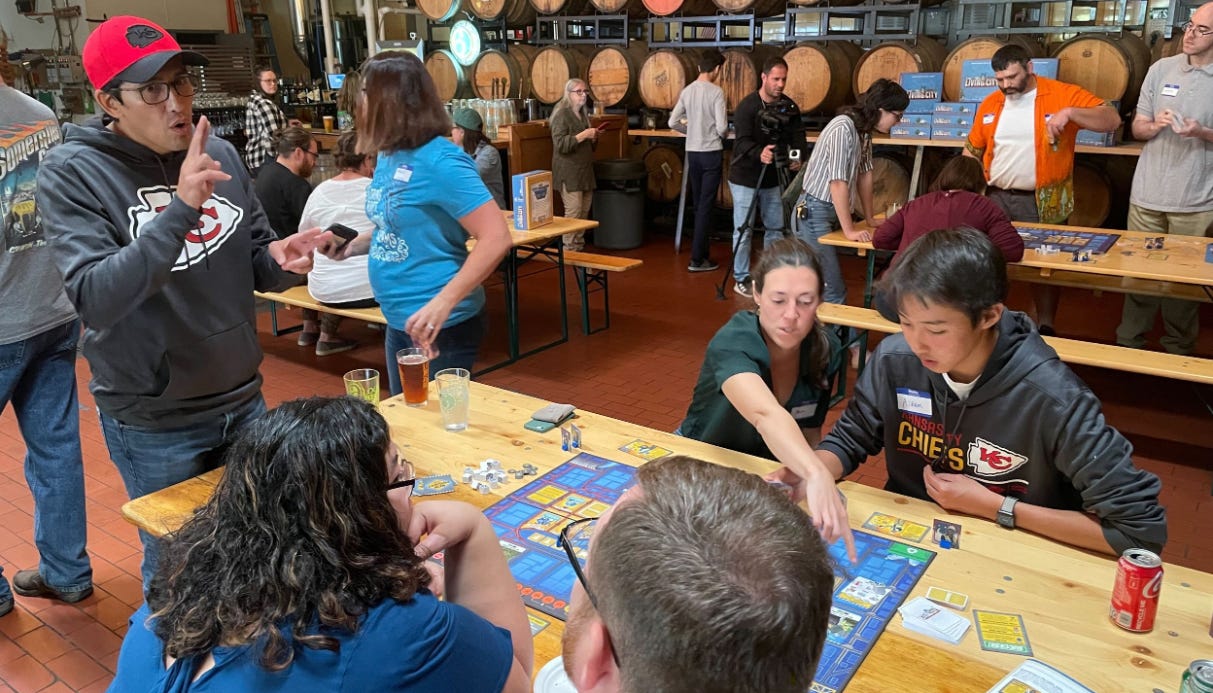The untapped potential of America's neighborhoods
Plus, family’s place in the American social fabric and CivicLex
We’ve been on a bit of a holiday reflection kick for the last few weeks. I mean, how could we not write about Halloween, Veterans Day, and Thanksgiving? But, don’t worry, you’re not about to read an essay on the relationship between Cyber Monday and community. Maybe next year.
Instead, we’re back with a few reads that we found interesting this week. Each raise questions worth grappling with:
What role can neighborhoods play in bolstering social capital?
How has American family life changed in recent decades?
What does it take to get residents and local governments more connected to one another?
We hope you enjoy this week’s reads! Please keep sending article recommendations our way - we’ve been excited to feature many of them in our curated lists. And, as always, we’re grateful for any feedback you’re willing to share.
The Reads
Bloomberg - “American Neighborhoods Are in Trouble” by Seth Kaplan (Oct. 2023)
What will it take to strengthen America’s social fabric? Seth Kaplan, author of Fragile Neighborhoods, makes the case that federal policies and big philanthropy are far from the answer. He laments the siloization created by national policy and the client-like relationships created by professionally managed nonprofits. Instead, he advocates for action at the “hyperlocal” level, where “we all have an opportunity to contribute—starting with our own neighborhoods, and working sideways, one ZIP code at a time.”
The Research
The Social Breakdown - “Family’s Place in America’s Social Fabric” by Kim Parker (Nov. 2023)
Many social capital theorists argue that family is the foundational building block of American community life. But American family life has changed drastically in recent decades, both in terms of how Americans are forming families and their perspectives on the role of family. Drawing on Pew’s recent survey, Kim Parker details the nature of these changes in her recent piece for AEI’s The Social Breakdown series:
Children are significantly less likely to be raised in a household with two married parents. In 1970, 82 percent of children were raised by two married parents, compared to 64 percent by 2021. These trends vary widely by educational attainment.
Americans view family and marriage as less important to leading a fulfilling life. The recent Pew survey found that 70 percent of Americans say having a job or career is extremely or very important to leading a fulfilling life, compared to just 25 percent who say having children or being married is highly important.
Parents prioritize financial milestones for their children over family milestones. Approximately 90 percent of parents shared that it’s extremely or very important for their children to have careers they enjoy as adults, compared to just 20 percent of parents who say getting married or having kids is highly important.
There is a growing gap in well-being between partnered and unpartnered adults. Unpartnered adults earn less money, are less likely to be employed, and have worse health outcomes than partnered adults. The direction of causality is not articulated in the article.
What do you make of the recent Pew data? Is it cause for alarm? Do you believe, as Parker writes, that something else “could fill the gap and help people feel connected and cared for in the future?”
The Work
CivicLex - Lexington, KY
CivicLex is a new type of civic institution that helps residents understand local government, helps local government connect with residents, and is building a community in which everyone can participate in the decisions that shape where they live.
There are three core pillars of CivicLex’s work:
Civic education programs to help residents understand the issues impacting their city and county and equip them to meaningfully engage with those issues.
Civic transformation projects that bring together residents and government officials to reimagine civic processes and make it easier for residents to get engaged.
Relationship-building initiatives in which residents can connect directly with people in positions of political power through shared governance structures.
In just over five years of operations, CivicLex is already strengthening civic life in Lexington and Fayette County, KY, filling a void in the local news ecosystem and bolstering participation and engagement with local government. Check out this recent profile on CivicLex to learn more about their efforts.
Have feedback on the newsletter? Want to share content for us to feature? Interested in getting involved as a contributor? Email us at theconnectivetissue@gmail.com.






